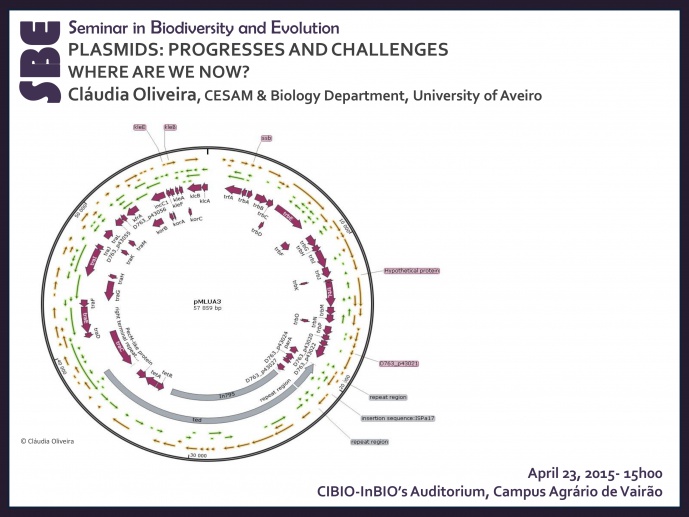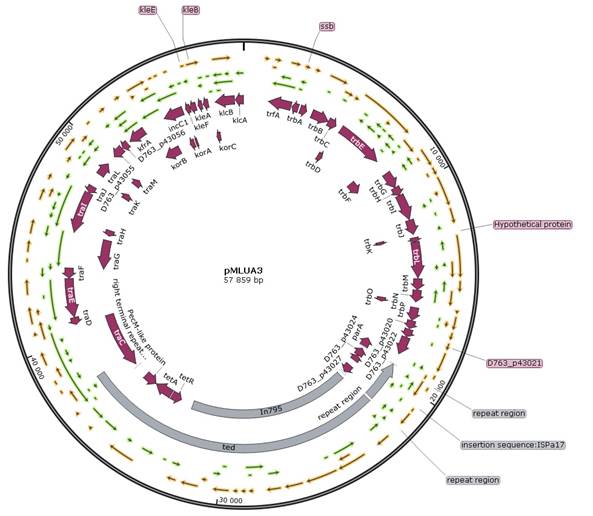PLASMIDS: PROGRESSES AND CHALLENGES - WHERE ARE WE NOW?


Bacterial life is adapted to diverse environments where different selective pressures can be identified, like contamination with xenobiotic compounds. This functional diversity is dependent on bacterial genomes. Massive sequencing has shown that bacterial genomes are not static and that gene exchanges and rearrangements are providing for environmental adaptations.
Plasmids are assumed to be the most significant players of the communal gene pool due to their successful collaboration with other mobile genetic elements that together make gene transfer break phylogenetic boundaries. Examples of plasmid encoded traits are antibiotic resistance and virulence genes and genes encoding enzymes for degradation of toxic compounds. This ensemble of “mobile” genes in a bacterial community is of great research interest because of their biotechnological and risk assessment potential and also because these mobile genes enclose the bacterial communities response to environmental pressures.
In the last years the knowledge about plasmid biology, diversity and epidemiology has increased together with an effort to develop novel tools for plasmid investigations.
In this seminar I will talk about the current status of plasmid studies, tools and approaches, describing the progresses and challenges found on the way. I will also present work carried out in the MICROLAB, involving plasmid diversity in impacted environments, association with other mobile genetic elements and the development of tools for the characterization of accessory regions in plasmids.
Cláudia Oliveira received her PhD in Biology from the University of Aveiro in 2007 in the field of protein chemistry. After, she joined the Microlab, a molecular microbiology laboratory at the Biology Department of the University of Aveiro, headed by António Correia. There she started working with broad host range plasmids in polluted environments. Currently she is post-doc researcher at CESAM and invited professor at the Biology Department, Aveiro. Her research field is about plasmid diversity, focusing on accessory genes and the use of non-cultivable approaches for their characterization.
[Group Leader: Fernando Tavares, Microbial Diversity and Evolution]
Image credits: Cláudia Oliveira